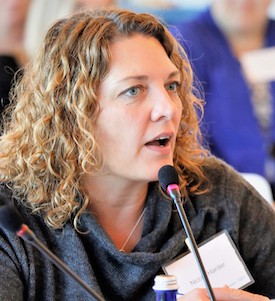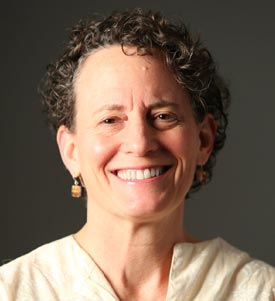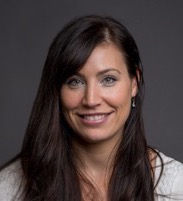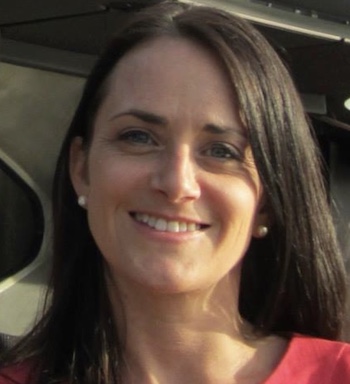Here are details of the 94 tremendous talks, demonstrations, discussions and workshops at the 2019 SIM Expo!
| Oct 20 | Oct 21 | Oct 22 | Oct 23 |
| CAE OnBoard event (private | Conference Day 1 2 keynote speakers Poster & Video Crawl 5 workshops Ask the Experts / Community of Practice SIM-in-Action & Virtual Showcase (Set 1) SIM Awards | Conference Day 2 1 keynote speaker 10 workshops Research Presentations SIM-in-Action & Virtual Showcase (Set 2) Wisdom of the Crowd | Rencontre annuelle du Réseau d’enseignement par simulation du Québec (RESQ) |
Join Canada’s passionate, interprofessional healthcare simulation community and world-leading experts at the 2019 SIM Expo!
In the meantime, see the 2018 SIM Expo program for a glimpse of why SIM Expo is so highly rated (98% of participants say they would recommend it to a colleague!), informative, collaborative, and fun.
What can you expect?
Expo participants tell us that what they appreciate most are the opportunities to learn and to connect with others – so we plan the program to include as much learning and networking as possible! You can expect:
- 4 World-class keynote speakers
- 14 Live demonstrations of innovative sim scenarios, curricula, tools, VR, AR and serious games
- 20 Presentations of emerging research findings and best practices
- 15 Practical, engaging workshops
- 31 Posters summarizing research, innovations and impact
- Structured networking and community of practice gatherings
- Exhibits from leading simulation vendors
- A few surprises!
Keynote Speakers
We are excited to announce these incredible, globally-recognized leaders as keynote speakers!
Building the Bridge: The First Steps to Creating a Psychologically and Culturally Safe Simulation

Nicole Harder RN, PhD, CHSE, CCSNE
Interprofessional SIM champion & psychological safety researcher
At the University of Manitoba, Dr. Harder’s interprofessional position includes simulation-based education and research for the Colleges of Dentistry, Medicine, Medical Rehabilitation, Nursing and Pharmacy. Her current work is creating, implementing, and studying the use of a psychologically safe debriefing framework following expected and unexpected patient death in simulation and clinical experiences with health care students and practitioners. Dr. Harder is the Editor-in-Chief for the peer reviewed journal Clinical Simulation in Nursing, and serves on the Board of Directors for the International Nursing Association for Clinical Simulation and Learning, and with Simulation Canada. She is also an educator for the Canadian Association for Schools of Nursing in the Simulation Nurse Educator certificate program.
Easy to say but hard to do: Establishing and maintaining psychological safety in simulation and debriefing

Jenny Rudolph PhD
Debriefer with good judgment & world-leading researcher
Dr. Rudolph is a life-long athlete who brings the joy of practice to learning in healthcare education, especially feedback, debriefing, and collaboration at point of care. Jenny is an organization behavior scholar on the faculty of Massachusetts General Hospital Department of Anesthesia Critical Care and Pain Medicine, and department of Anesthesia at Harvard Medical School. The approach to reflective conversations known as “debriefing with good judgment” that Jenny pioneered has helped health educators world-wide promote dynamic, honest, but non-threatening conversations. The “…with good judgment approach” pairs three key dichotomies to promote connection and learning: psychological safety and challenge in the learning environment; holding high standards and high regard for learners; and balancing advocacy and inquiry to share and elicit thought processes. Dr. Rudolph studied system dynamics at MIT Sloan School of Management, received a doctorate in organizational behavior from Boston College, was a National Science Foundation Fellow, and received a B.A. in sociology from Harvard College.
Biigiiweyan: Simulation for Indigenous Cultural Safety

Patty Chabbert MA
Indigenous wellness advocate & researcher
Patty Chabbert, Algonquin from Kipawa and North Bay On, has a Master’s in Public Policy and Administration, with a focus on Indigenous health administration. Patty has extensive experience working with Indigenous organizations and communities as well as all levels of Government, non-profits and industry. She has worked in a variety of areas, including youth and community engagement, land-based STEAM and educational programs, Indigenous youth suicide, child welfare, Indigenous research methodologies and evaluation, urban Indigenous community development and services, housing and homelessness and much more. Patty’s current role is with the First Peoples Centre at Canadore College as the Manager of Indigenous and Business Relations.

Louise Moir RN BScN
Canadian simulationist extraordinaire
Louise is the lead nursing simulation technologist at Canadore College and Nipissing University. During her nineteen-year career in nursing education, she has been actively involved in designing and implementing healthcare simulation, assisting with development of interprofessional education and co-creating the Simulated Participant Program at Canadore College. She was honoured to work with colleagues and Indigenous communities in creating an Indigenous Interprofessional Cultural Safety Training Program: Biigiiweyan. Through conversations with Indigenous community members and the teachings of the Medicine Wheel, Louise was able to create a narrative that would become the simulations for Biigiiweyan. Louise is the founder and co-organizer of the Northern Ontario Simulation Symposium which brings together healthcare professionals, simulationists and industry to network and learn from each other. Louise is a graduate of the Keystones of Healthcare Simulation and MASCS certificate programs and proud recipient of the first SIM Citizenship Award.
Workshops
Le transfert des apprentissages à l’aide de la simulation clinique haute-fidélité
Utiliser la rubrique du jugement clinique de Lasater pour guider le débriefing
Double-Black Diamond Debriefing: Strategies for your most difficult situations
Creating Dynamic Simulation Scenarios for Participants with Variable Performance Levels
How to bypass organizational barriers to provide mass in-hospital training
System Integration Simulations: A Workshop focusing on Healthcare System Design, Process and Testing
Évaluation de simulation formative ou sommative? Pourquoi pas les deux!
Introducing Name-Claim-Aim: An Innovative A-B-C Tool for Teaching Crisis Resource Management
Peer coaching to improve quality in simulation programs
Examining the debriefing aspects of scenarios integrating first nation communities
La simulation in situ pour tous et en tout temps
Data driven learning: helping trainees interpret assessment data generated by simulators
Assessing individual trainee performance within a team context
Using Simulation for Systems Testing: Interactive Case Studies
L’outil de simulation de table EMERGO : une approche pédagogique innovante
SIM-in-Action & Virtual Showcase
A Matter of Life: “Smart” Stimuli-Responsive Polymers for Medical Simulation
Development of a Consumer-level Haptic Epidural Simulator
Creating Interactive Videos on Infection Control Practices for Healthcare Students
How Real is Real Enough in AR, VR and Screen-based Simulations?
East Meets West – A Virtual Simulation Game Collaboration
Cre@scen – A web-based platform for simulation scenario design
Enhanced Reality for Medical Simulation
Helping Undergraduate Nursing Students to Put the Pieces together Using an Interactive Digital Simulator
Des soins à domicile dans un monde virtuel
Incorporating Community and Mental Health/Addictions Concepts into Senior BScN Student Simulation
Come and Play the New Virtual Healthcare Experience
Using healthcare simulation for organizational design
Virtual Simulation for Community, Population and Public Health
A Virtual Patient Simulation Platform for Medical Learners
Detailed Agenda
Click HERE to jump to the detailed agenda for the SIM Expo.